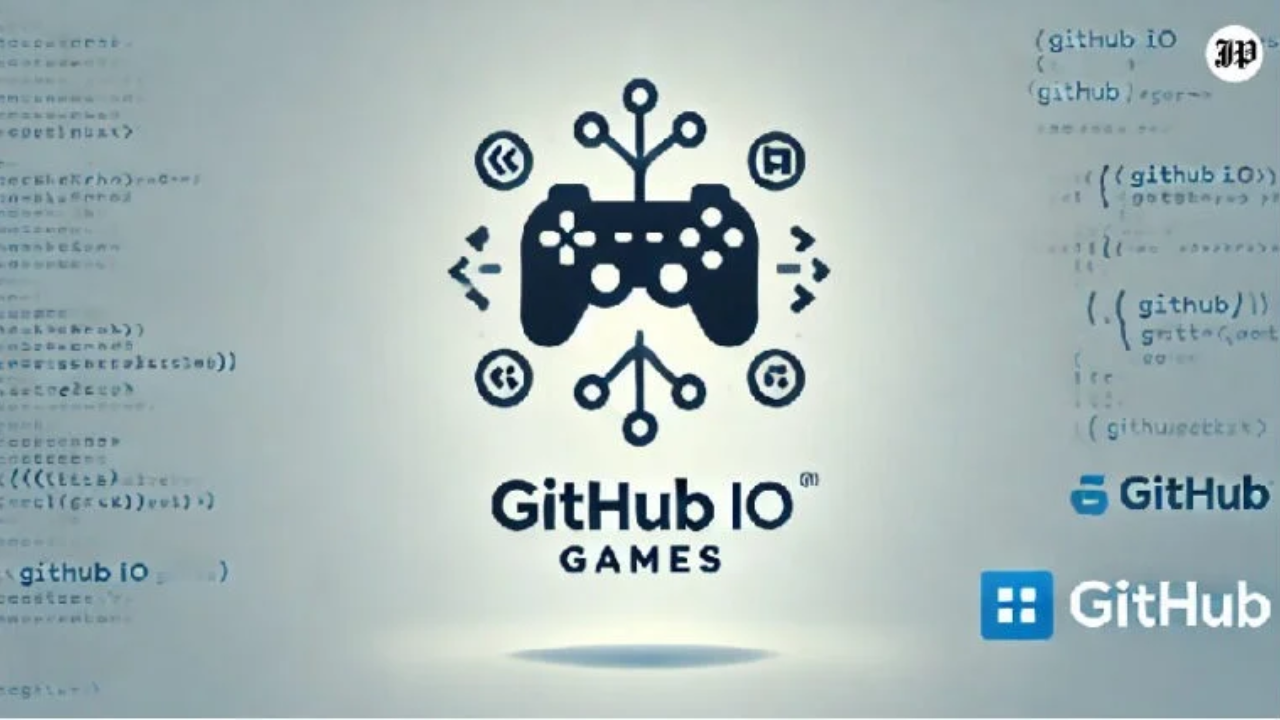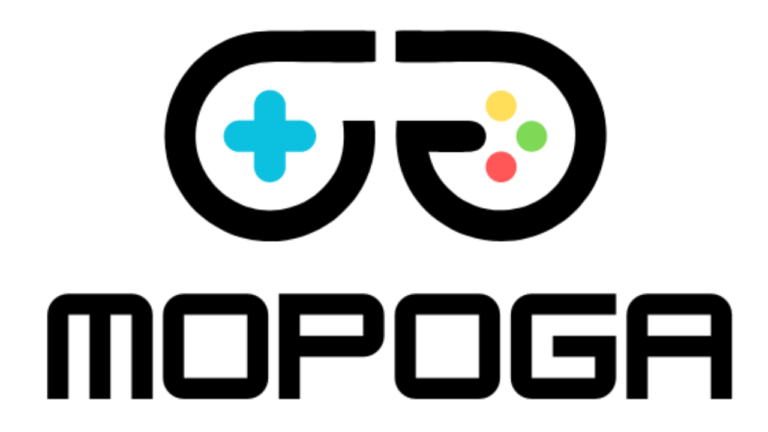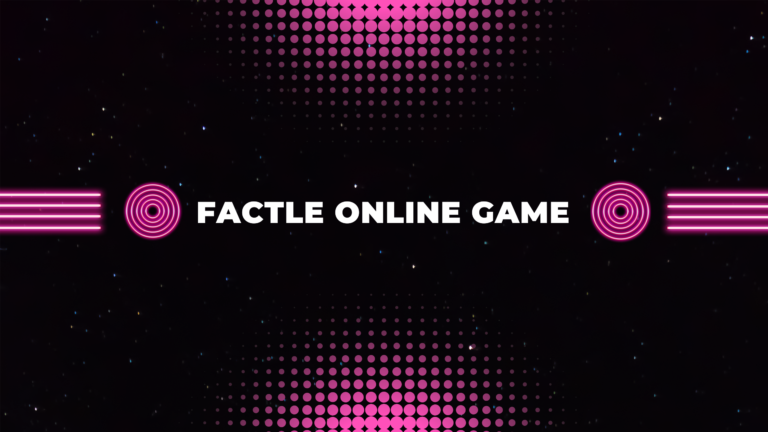
The landscape of online gaming has evolved significantly, particularly with the emergence of platforms like GitHub.io, which allow developers to create and share innovative open-source browser games. These games not only offer unique and engaging experiences for players but also provide insight into their development processes. Ranging from nostalgic arcade classics to intricate strategy games, GitHub.io has become a favorite destination for casual gamers, coding enthusiasts, and aspiring developers alike. Let’s take a closer look at what GitHub.io games are, their unique features, and the growing interest they are generating.
What Are GitHub.io Games?
GitHub.io games are web-based games hosted on GitHub Pages, which is a service provided by GitHub for showcasing and sharing projects. Built primarily using open-source code, these games allow players to access and enjoy them directly in their browsers without any downloads. This approach makes GitHub.io games not only easily accessible but also convenient for users across various devices.
Key Characteristics of GitHub.io Games
- Open-Source Nature: One of the standout features of GitHub.io games is their open-source aspect. This means that developers make their code publicly available, allowing players to explore, modify, and even contribute to the game’s development.
- Variety of Genres: The diversity in game genres is staggering, ranging from simple puzzle games to more complex simulation and strategy titles, highlighting the creativity of indie developers.
- Collaborative Community: Open-source projects thrive on community involvement, where players can provide feedback and developers can make improvements based on user contributions.
- Browser-Based Play: Since these games run directly in the web browser, there are no installation requirements, making them instantly playable from any device with internet access.
Popular Categories of GitHub.io Games
The variety of games available on GitHub.io covers an extensive range of genres. Here are some popular categories and examples of notable games that have attracted player attention.
1. Retro and Arcade Games
Many developers draw inspiration from classic arcade games, providing a nostalgic experience that resonates with players of all ages. These games are typically easy to pick up, yet challenging enough to keep players engaged.
Examples:
- Breakout Clone: A contemporary take on the classic paddle-and-ball game that often includes customizable features, making it a hit among novice developers.
- Snake: This timeless classic has inspired numerous open-source variations, often introducing new levels and unique power-ups.
2. Puzzle and Strategy Games
Puzzle games found on GitHub.io offer a range of intellectual challenges that require critical thinking and problem-solving abilities. They can vary greatly in complexity, showcasing the flexibility of open-source game design.
Examples:
- 2048: This addictive number puzzle has seen countless adaptations, with GitHub.io versions that allow users to tweak game parameters for added fun.
- Chess AI: Developers have created chess games featuring AI opponents of different difficulty levels, enabling players to delve into the code to enhance the AI or modify the rules.
3. Simulations and Sandbox Games
Simulation games enable players to interact with digital environments and explore various scenarios. These often feature straightforward graphics but are rich in mechanics that provide a unique gaming experience.
Examples:
- Conway’s Game of Life: A renowned cellular automaton where players can study patterns and behaviors on a grid.
- Epidemic Simulators: Numerous developers have crafted simulations that illustrate disease spread under various conditions, offering both educational insights and entertaining gameplay.
4. Text-Based and Adventure Games
Text-based games, reminiscent of early gaming days, are enjoying a revival on GitHub.io. They emphasize storytelling and player choices, leading to immersive experiences despite their simplicity.
Examples:
- Zork-Inspired Adventures: These games pay homage to the iconic 1980s title, allowing players to navigate dungeons and solve intricate puzzles.
- Choice-Based RPGs: Many developers use GitHub.io to create narrative-driven games where player decisions shape the story’s direction.
5. Educational Games
Not all GitHub.io games are purely for entertainment; many are designed with educational purposes in mind. These games cover a range of topics, providing players with opportunities to learn while playing.
Examples:
- Math Puzzles: Engaging games that challenge arithmetic skills through fun and interactive tasks.
- Typing Practice Games: Tools designed to enhance typing speed and accuracy, catering to students and professionals alike.
How to Discover GitHub.io Games
Finding exciting GitHub.io games is easy, thanks to the platform’s search and organizational tools. Here are a few methods to uncover new titles and developers:
GitHub Search
By entering “GitHub.io games” or a particular sort like “arcade GitHub.io” in the GitHub search bar, players can find a plenty of well known projects.
Repositories and Collections
Developers often curate collections of GitHub.io games within single repositories, simplifying the exploration of multiple titles in one location.
Community Engagement
The social nature of GitHub allows developers to follow one another’s work, fostering a community-driven discovery process that helps players find new games.
Game Hubs
Some developers establish dedicated websites or pages that function as central hubs for their games, streamlining access and gameplay.
Learning and Contributing: GitHub.io as a Development Resource
For aspiring developers, GitHub.io games provide an exceptional learning environment. Here’s how users can leverage the platform’s open-source framework:
Analyzing Game Code
Most GitHub.io games come with public repositories where users can examine the game’s code. This is a fantastic resource for learning programming languages like JavaScript, HTML5, and CSS. By reviewing real-world code, developers can understand how game mechanics are crafted and optimized.
Contributing to Projects
Many GitHub.io games actively welcome contributions. This collaborative atmosphere allows new developers to enhance a game, resolve bugs, or introduce new features. Engaging with open-source projects is an effective way to gain practical experience, build a portfolio, and network with other developers.
Starting Your Own Game Project
For those interested in developing their games, GitHub.io offers free hosting and a nurturing community. Developers can utilize basic web technologies to create games, host them on GitHub Pages, and share their creations with the world. This platform is perfect for experimenting with game development concepts and receiving constructive feedback.
Benefits of GitHub.io Games for Casual Players and Developers
Whether you’re a casual gamer or an emerging developer, GitHub.io games provide a distinctive experience that traditional gaming platforms often lack. Here are some advantages:
- Free and Accessible: Most GitHub.io games are available at no cost, making them accessible to anyone with a web browser.
- Transparency Through Open Source: Users can view the code behind the games, ensuring transparency and fostering trust among players.
- Learning Opportunities: For aspiring developers, GitHub.io games serve as a practical avenue to gain programming skills and learn from peers.
- Customizable Gameplay: Players with coding knowledge can modify many GitHub.io games to create personalized gaming experiences.
Frequently Asked Questions
What are GitHub.io games?
GitHub.io games are browser-based games hosted on GitHub Pages, utilizing open-source code. They are accessible, typically free, and can be modified by anyone interested.
Can I contribute to GitHub.io games?
Yes, many GitHub.io games welcome contributions. Developers can submit improvements, fix bugs, and propose new features through pull requests.
Are GitHub.io games safe to play?
Generally, yes. Since these games are open source, users can review the code to identify any security issues. It’s advisable to ensure the game is from a reputable repository.
Do I need programming skills to enjoy GitHub.io games?
No, you don’t need programming knowledge to play these games. However, understanding basic programming languages like JavaScript can enhance your ability to modify or comprehend game mechanics.
How can I find popular GitHub.io games?
You can discover popular GitHub.io games by searching on GitHub’s website, exploring curated lists, or following developers who frequently release new games.
Is it possible to create my own GitHub.io game?
Absolutely! GitHub Pages allows developers to host their web-based games for free. With some knowledge of HTML, CSS, and JavaScript, anyone can create and share their game.
Conclusion
GitHub.io games represent an exciting alternative to mainstream gaming, emphasizing community collaboration, creativity, and open-source innovation. By utilizing GitHub Pages, developers can connect with a global audience while offering an inclusive and engaging gaming experience. From retro classics to educational simulations, GitHub.io games cater to a diverse range of interests, making it a versatile platform for both gamers and developers. Whether you’re seeking to play, learn, or create, GitHub.io games unlock a world of possibilities in browser-based gaming.


